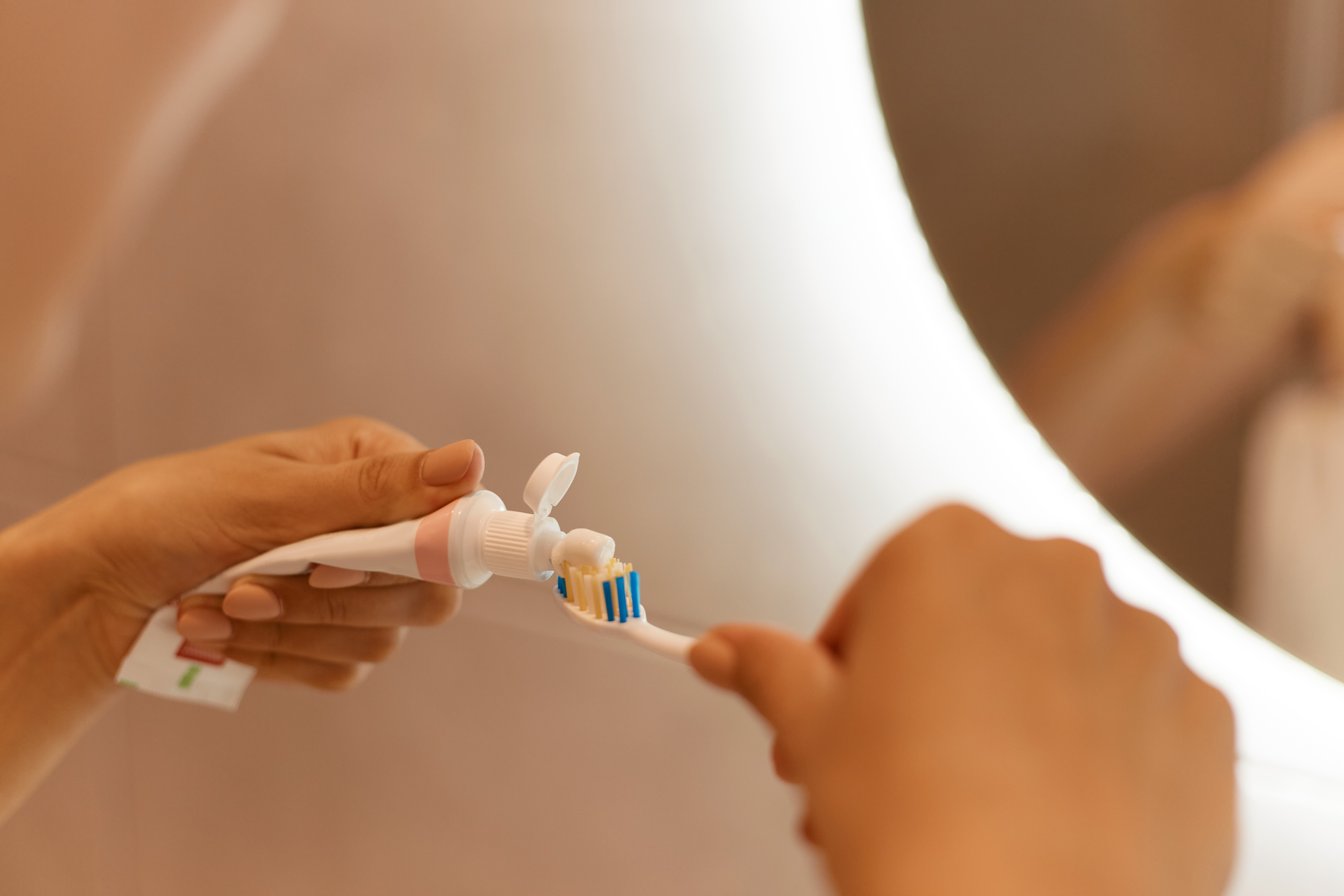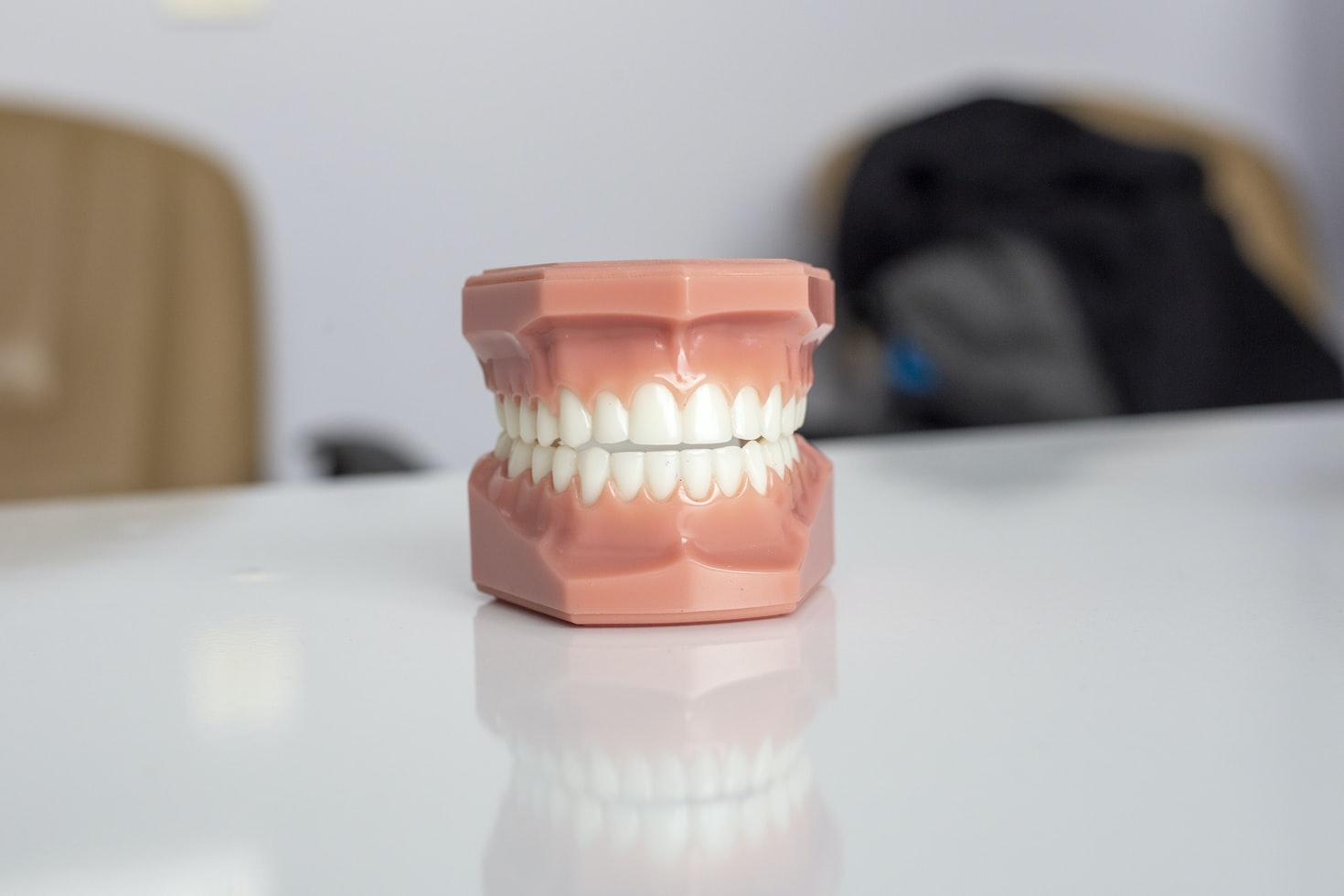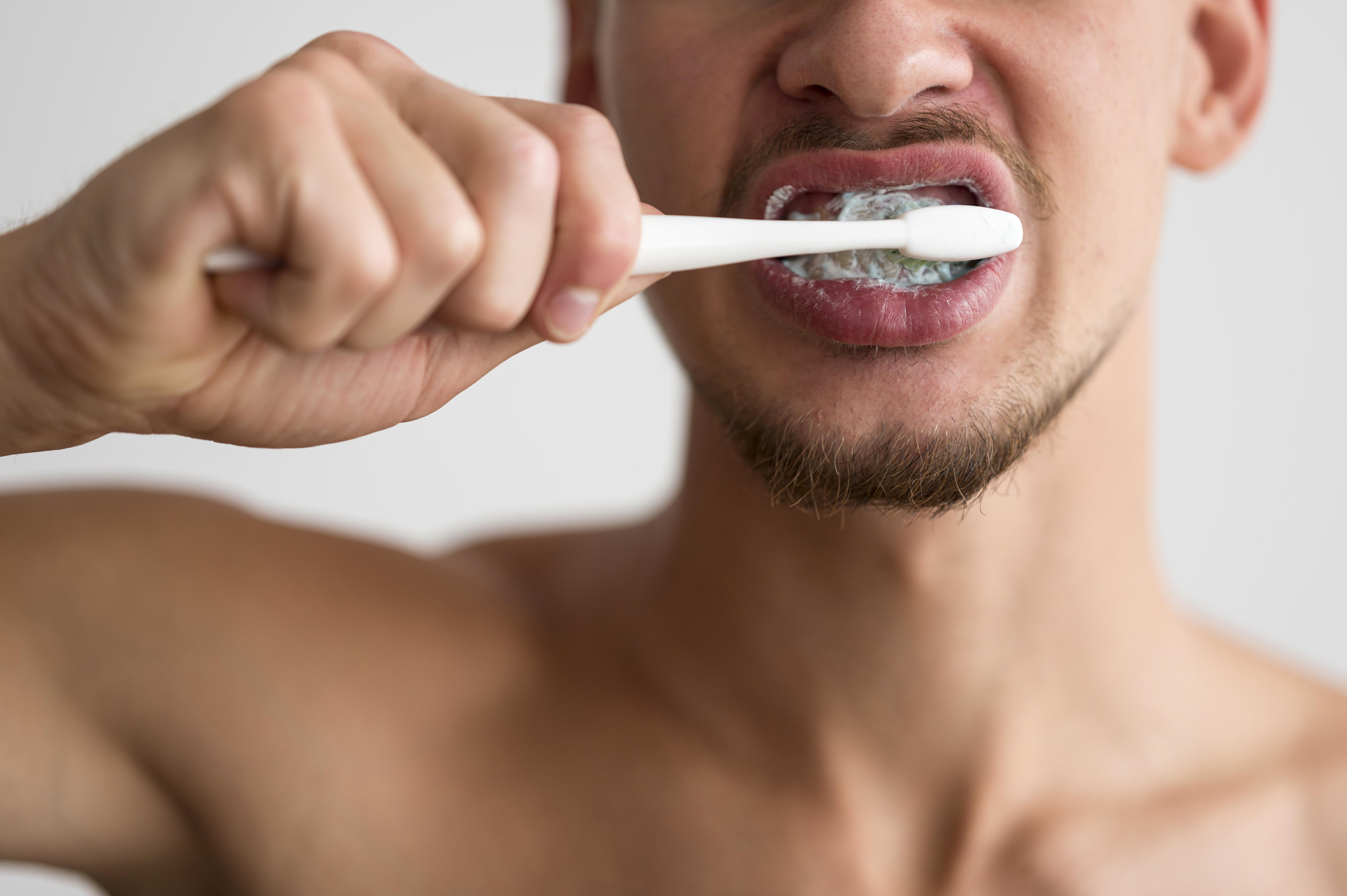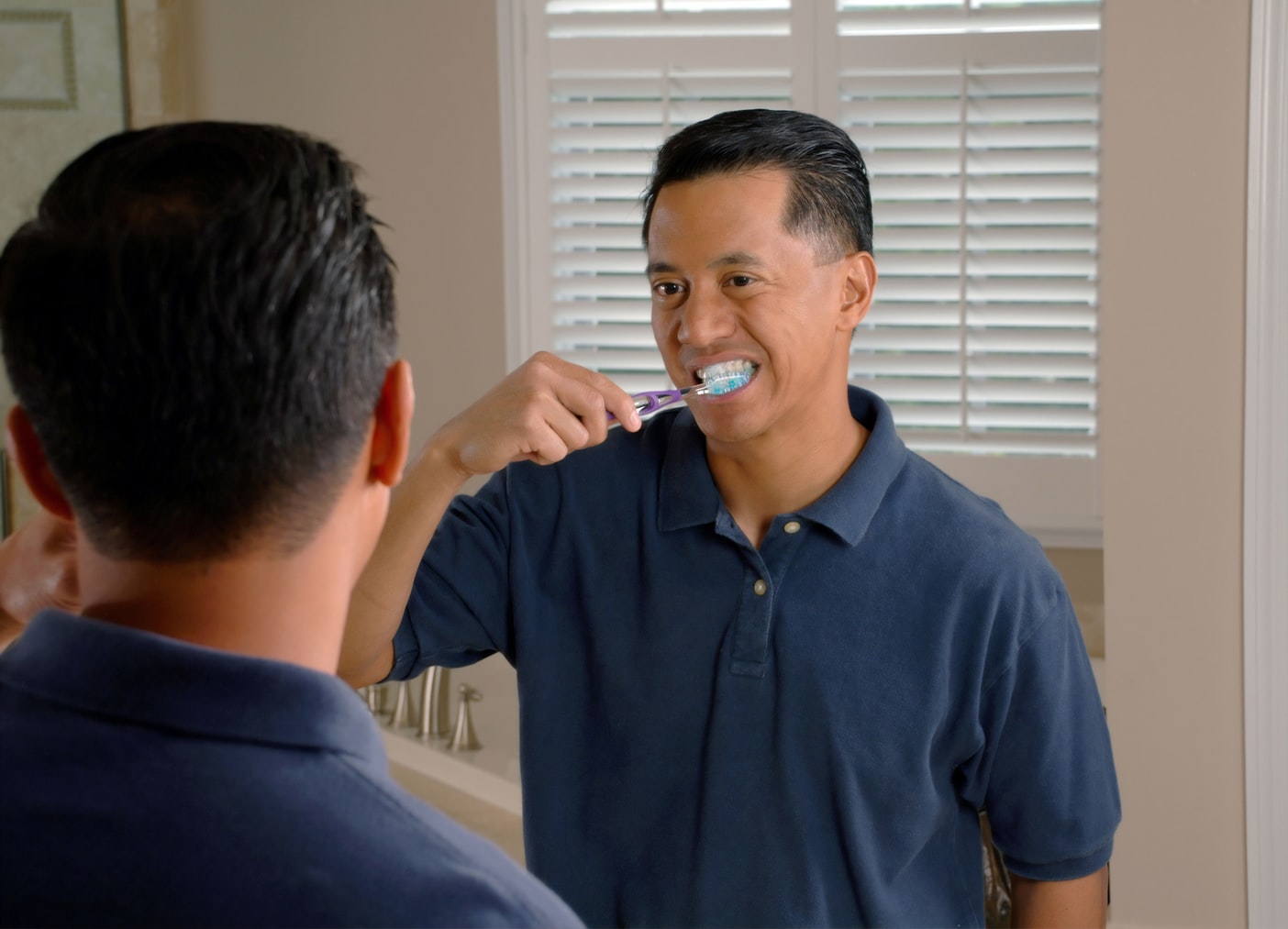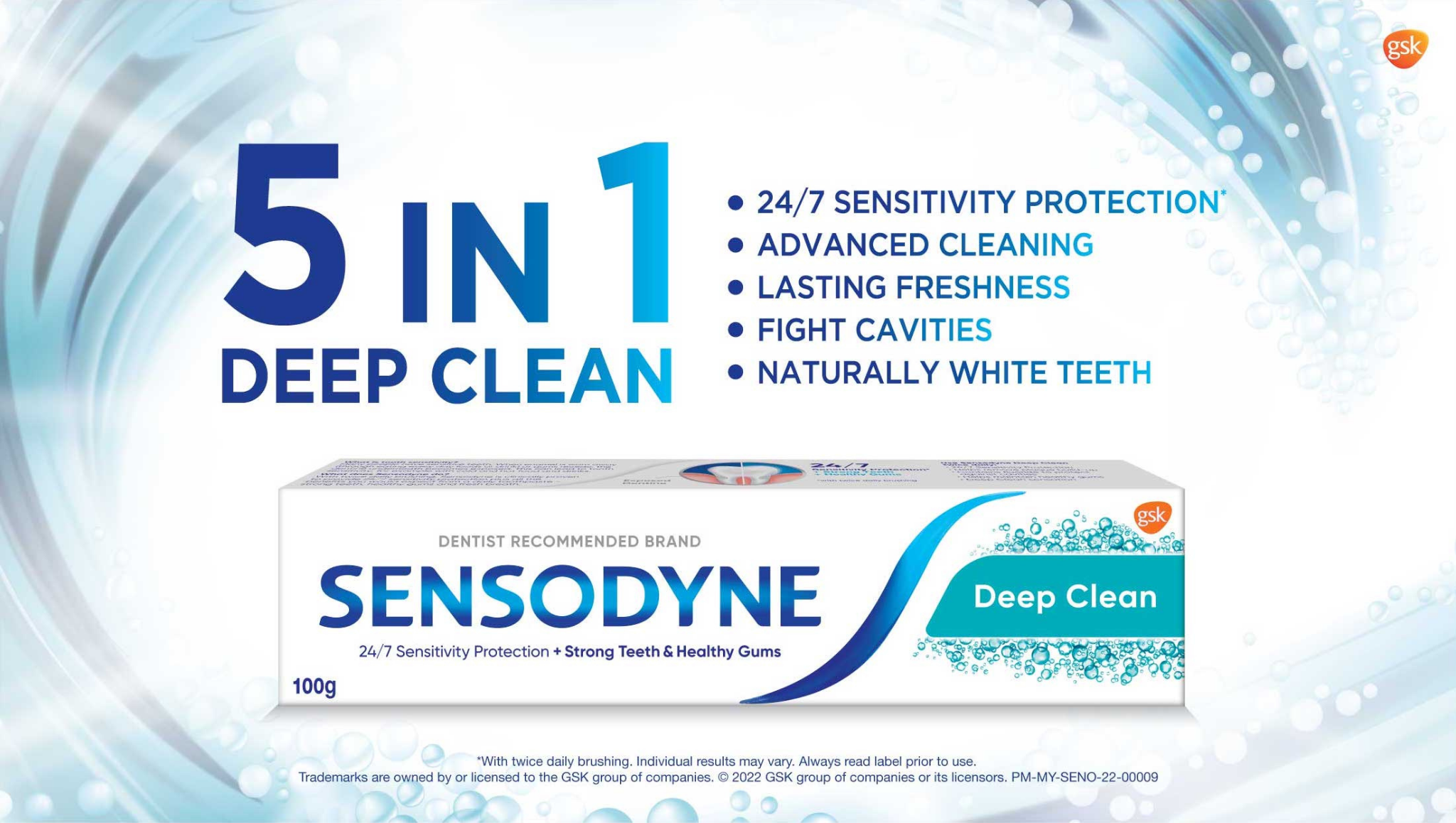Have Sensitive Teeth? Here are 6 Myths & Truths About This Common Dental Problem
Tooth sensitivity is common, and typically affects people from the ages of 20 to 50.
Let's talk about sensitive teeth
First off, you should know that tooth enamel is the hardest substance in your body. This outermost protective surface of your teeth is what helps you to chew your food, and enjoy hot or cold beverages.
However, enamel wear can happen over time, gradually exposing the dentine beneath, which may lead to tooth sensitivity a.k.a dentin hypersensitivity.
If a sudden, shooting sensation in your teeth while tucking into an icy bowl of ice kacang or steaming hot cup of coffee are familiar annoyances, then you may be experiencing tooth sensitivity.
There's no need to fret though, as having sensitive teeth is fairly common, and more importantly, manageable.
1. Brushing your teeth right after meals keeps them clean and healthy
This is a myth.
While practicing poor dental hygiene, like going to sleep without brushing, can cause a build up of bacteria, potentially leading to tooth decay and gum disease, reaching for your toothbrush right after a meal is generally not recommended.
Eating or drinking can change the pH value of the saliva in your mouth, making it more acidic. When this happens, your tooth enamel is typically at its weakest. Brushing your teeth in this state can erode and make it thinner, giving rise to tooth sensitivity.
If you feel the need to brush, try waiting for half an hour to an hour after eating or drinking. Otherwise, gargling with water is also an option.
2. Only cold food causes soreness of the teeth
Myth!
As teeth sensitivity occurs when the dentine inside your tooth is exposed from enamel wear, you may feel discomfort from both hot and cold temperatures — think usual offenders like ice cream and hot soup.
Some may even feel the uncomfortable sensation after inhaling big, sudden breaths of cold air. To top it off, sugary and acidic food can also cause discomfort to teeth that have become sensitised. :(
3. Certain types of toothpastes work better to relieve tooth sensitivity
Truth!
If you speak to your dentist, they'll most likely recommend toothpastes that contain active ingredients such as potassium nitrate to lessen the discomfort you feel in your teeth. Potassium nitrate is a compound that blocks pain signals sent through nerves in your tooth to your brain.
Nowadays, there are many brands that not only offer tooth sensitivity benefits, but also contain whitening properties, help with freshness of breath, and more aspects that you would look for in maintaining a healthy set of teeth.
4. Teeth whitening treatments can cause tooth sensitivity
This is true.
However, sensitive teeth brought upon by professional whitening treatments is not the same as dentin hypersensitivity.
With the former, sensitivity is felt due to bleach penetrating the tooth, while the latter can arise from regular wear and tear of the enamel, or receding gums that expose the roots of the teeth.
Regardless of the root cause, clinical studies have shown that discomfort from tooth sensitivity can be lessened with toothpastes containing potassium nitrate, compared to regular fluoride types.
5. Aggressive brushing can lead to sensitivity
Mmhmm, true!
Forcefully and vigorously brushing your teeth can quickly wear out the enamel layer. It's even worse when you couple aggressive brushing with a hard-bristled toothbrush.
You should take your time when brushing your teeth, be it in the morning when you wake up or before bed. Using a toothbrush with softer bristles, brush thoroughly for at least one minute, making sure you reach often-neglected parts of your teeth at the back of your mouth.
The key is to be gentle enough to preserve your enamel layer, while brushing with meticulous care, so as to prevent factors that may lead to sensitivity.
6. Tooth sensitivity is temporary and only affects older people
Uh uh, myth, and myth!
It may come and go, but bearing with the discomfort without seeking ways to relieve tooth sensitivity may cause symptoms to worsen. Plus, most people who suffer from this common dental problem are between 20 and 50 years old.
You can typically find relief from soreness after a few brushes with potassium nitrate-containing toothpastes. Even with the discomfort lessened, it's a good idea to continue usage of such toothpastes in the long-run, as symptoms may return (especially when accompanied by poor dental care).
At the end of the day, finding the source of your sensitivity is important, so speak to your dentist for comprehensive care
If you're looking for a toothpaste to help with sensitive teeth, Sensodyne is a trusted brand that often comes recommended
Committed to working together with academic institutions and laboratories, the brand is always on a mission to innovate through science, and help users relieve discomfort from tooth sensitivity.
The new Sensodyne Deep Clean offers potassium nitrate benefits with its Foam Boost technology, in addition to sodium fluoride for fighting cavities.
With 24/7 sensitivity protection*, the toothpaste not only provides relief from sensitivity, it also delivers other oral care benefits. This includes long-lasting freshness, advanced cleaning, whitening properties, as well as cavity protection.
*With twice daily brushing. Always read the label prior to use.
Watch this short video to find out more:
Eager to experience life without worrying about tooth sensitivity? Find out more ways you can manage discomfort from Sensodyne today.
The information provided is for educational and communication purposes only and it should not be construed as personal medical advice. Information published in this article is not intended to replace, supplant or augment a consultation with a health professional regarding the reader's own medical care.
PM-MY-SENO-22-00053



